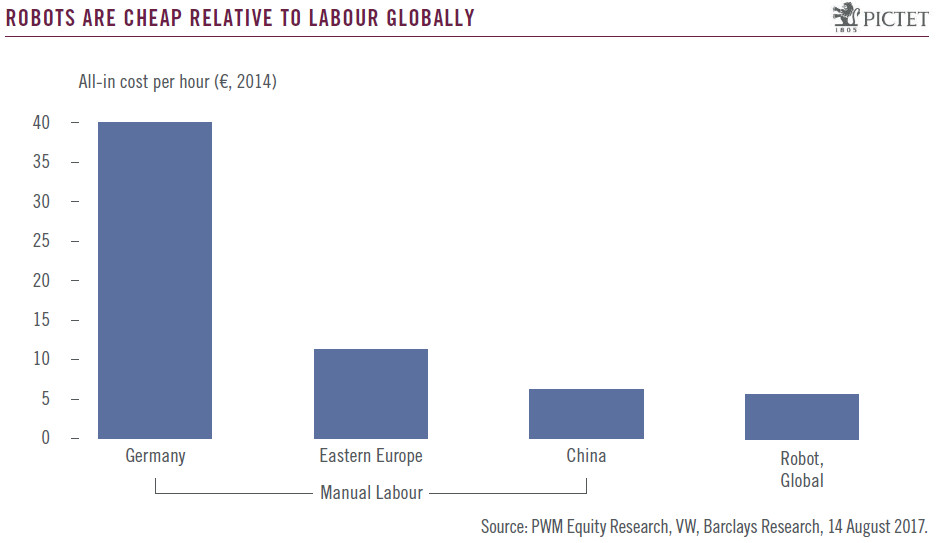Digitalisation offers huge new opportunities and improved growth, margins and valuations for some industrial firms, but will also create losers as traditional machinery sales decline.Amid a growing challenge from the emerging world, US and European industrial companies must be at the forefront of technological innovation to stay competitive. With the fourth industrial revolution, a new industrial era is opening up: digitisation. The fields of application of digitisation are vast, covering all aspects of industrial production, from the conception of a product to its production, marketing, after-sales services and recycling.Leading industrial firms are embracing digitisation and are increasingly looking to buy up new technologies through acquisition. Among other far-reaching changes,
Topics:
Fernand Pacicca considers the following as important: Macroview
This could be interesting, too:
Cesar Perez Ruiz writes Weekly View – Big Splits
Cesar Perez Ruiz writes Weekly View – Central Bank Halloween
Cesar Perez Ruiz writes Weekly View – Widening bottlenecks
Cesar Perez Ruiz writes Weekly View – Debt ceiling deadline postponed
Digitalisation offers huge new opportunities and improved growth, margins and valuations for some industrial firms, but will also create losers as traditional machinery sales decline.
Amid a growing challenge from the emerging world, US and European industrial companies must be at the forefront of technological innovation to stay competitive. With the fourth industrial revolution, a new industrial era is opening up: digitisation. The fields of application of digitisation are vast, covering all aspects of industrial production, from the conception of a product to its production, marketing, after-sales services and recycling.
Leading industrial firms are embracing digitisation and are increasingly looking to buy up new technologies through acquisition. Among other far-reaching changes, traditional business models are under threat, and use of low-cost ‘cobots’ could push industrial firms to rethink their production strategies, repatriating activities previously relocated to countries with low labour costs.

The savings potentially generated by these new technologies could imply a market of several trillion dollars worldwide. With high double-digit growth, software sales are likely to become an important part of industrials’ income. However, the productivity and efficiency gains from new technologies will also result in weaker demand for new machines or spare parts, which will hit traditional producers of machines that have not been able to develop in data-based services.
Today, the valuation gap between industrial companies and software vendors is around 30%. As the industrial companies leading the race to digitisation increase their revenue share from software and connectivity, they could break away from the rest of the sector, benefiting from stronger and more stable growth, improved margins and higher valuations.
All in all, while this fourth industrial revolution holds out the hope of improved growth, margins and valuations for industrials able to seize the opportunity, it will also create losers as traditional machinery sales decline. Automation companies are best positioned to benefit from this revolution in the medium to long term, along with companies providing cloud platforms and analytical solutions, but high valuations and slowing growth momentum may warrant caution for now.
